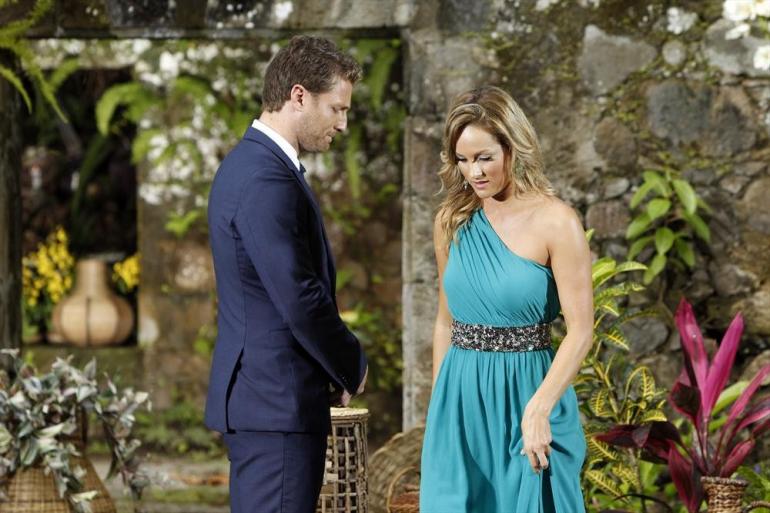

Though this issue of the Obiter hits stands (or MacBook screens) two weeks after the finale of the most explosive depressing season of The Bachelor, your EICs were so struck by the similarity between us law students and Clare Crawley that we decided to forego timeliness ever so slightly in aim of expounding this cautionary tale of love, rejection, and self-delusion.
For those of you who have been living under a rock (or who have better things to do) the eighteenth season of The Bachelor featured Juan Pablo Galavis, Latin lothario turned PR disaster/creep of the century. After slut-shaming a woman on national television and relying on his language barrier to excuse calling gay people perverts, JP ended the season with a bang by telling frontrunner Clare that he couldn’t wait for her to have his children about twelve hours before unceremoniously dumping her, all because she had the nerve to raise objection to…well, just google “what Juan Pablo said to Clare in the helicopter”. The tribunal of past Bachelor contestants noted that it was disheartening to see Clare’s intuition ringing the night before their last encounter when she confronted him about his apparent misogyny, only to be silenced by JP’s patronizing words. In the post-finale debrief, Clare proudly declared that she was proud of the harsh words she had dished out to JP when he let her go. She had stood up to him, getting the closure she needed and asserting her feelings. Unfortunately for Clare, she didn’t seem to realize that her moment of profound self-actualization came after “practically begging” for marriage (in the words of JP’s charming cousin; chivalry obviously runs in the family) and crawling back for more each time her suitor undermined her dignity. All this combined made her send-off seem more like a sour-grapes post-facto rationalization than a feminist victory.
Why are we recounting such drivel? Because we are all Clare. Though the title of this editorial references Bay Street for alliterative purposes, this metaphor of one-sided adoration applies much more widely to the relationship we occasionally and inevitably have with legal employment of all shapes and sizes. Which one of us hasn’t found ourselves on the unpleasant end of a post-interview phone call or email? Who hasn’t become (dare we say it) emotionally invested in the thought of a future at a firm, only to learn their love was unrequited? Who is stranger to the sinking feeling that your gut was right all along, and that you should have known this was not the work environment for you, before investing all that time and energy into interview prep?
What lessons can we draw from this? The irony is that JP, blessedly unaware of his own stupidity and pig-headedness, inadvertently exposed The Bachelor for the vapid sham that it is more effectively than any biting op-ed ever could. And in all this, the viewers are the twisted ones: someone finally conducts themselves genuinely (because some people are genuine assholes) and we get angry that they didn’t play the game according to the demented rules that were imposed upon them. Though we might be tempted to villainize JP, or the firms that will reject us, we can no more fault him for staying true to his offensive self than we can fault firms for running themselves as businesses. If we were sitting in the chairs of the recruiters, we would also turn away an applicant for bombing an interview or having earned some less than stellar grades; it is likely that many of us will do just that one day.
The lesson is that life is unfair: Clare did not deserve to be dragged through the mud any more than we deserve to lose an opportunity because we had an off day and bungled our interview. But the same thing holds true in both cases: we and Clare both knew the rules of the game before we started playing, and we knew there was significant risk for our egos to be shattered. Caveat emptor, right? And it’s also true that, like Clare, we may never fully have the cathartic, rewarding feeling of emerging from the ashes like a phoenix and redeeming ourselves in the face of those who scorned us (unless we engage in mental acrobatics and blatant self-delusion to convince ourselves otherwise). But that’s ok.
Despite what Clare’s friends are probably telling her right now over their fifth class of merlot, there sometimes is no greater meaning; sometimes things just don’t go the way we want them to. It doesn’t mean we are definitively better or worse off. Trying to make those judgments with any sort of accuracy is impossible, anyway. But it also doesn’t mean that we will never be happy again. In a career field notorious for its ruthlessness (whether such a reputation is fairly earned or not), rejection shouldn’t come as a surprise, because the reality is that every lawyer comes face to face with it sooner or later. What should quell our anguish, however, is the realization that there is very real self-empowerment to be derived from bracketing our failures instead of letting them overwhelm us. And while it’s important to distinguish between self-comfort and self-delusion, it is true that each unpleasant experience we will encounter on the job has something to teach us about ourselves, about the lawyer we might not even have realized we wanted to be, if only we pay close enough attention.
